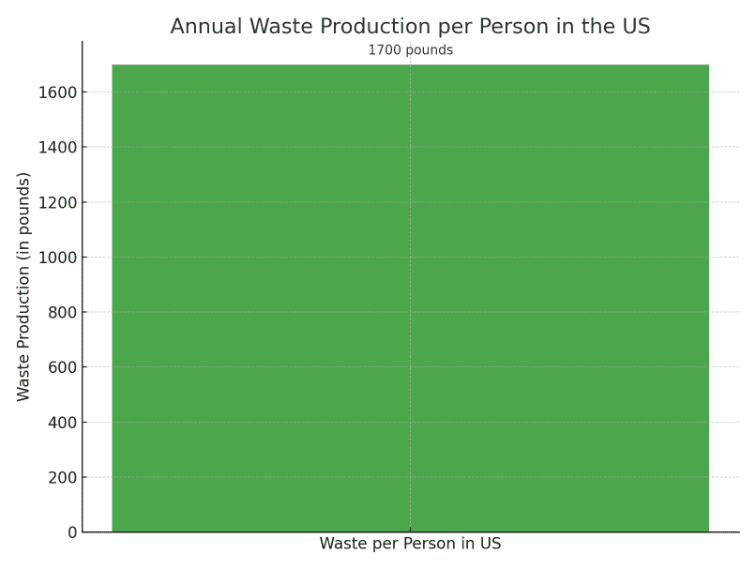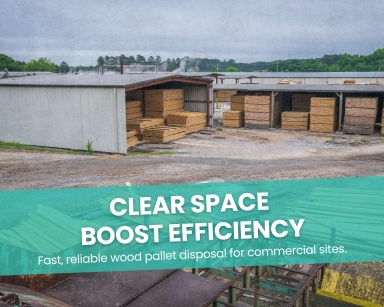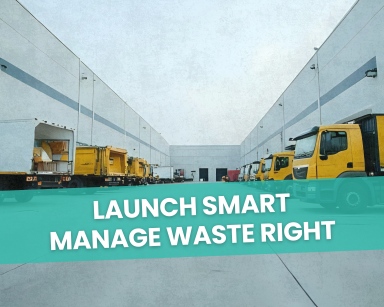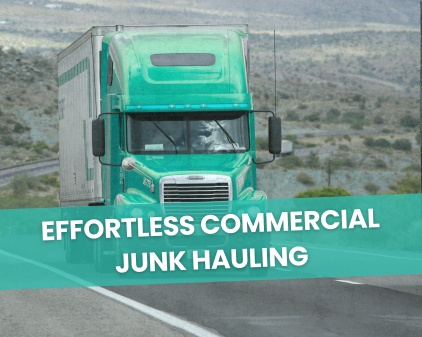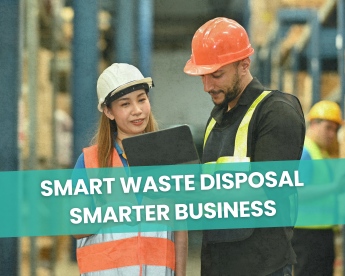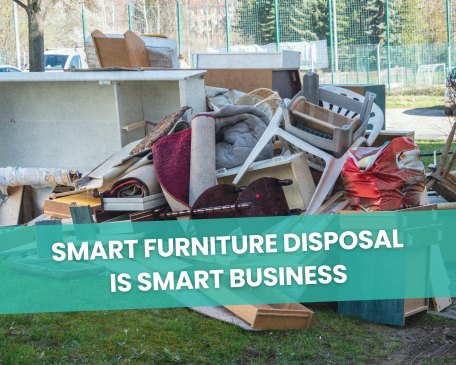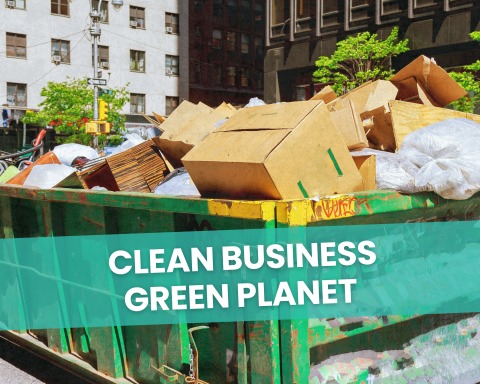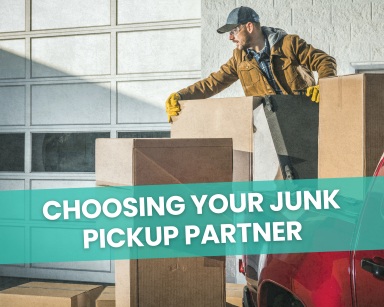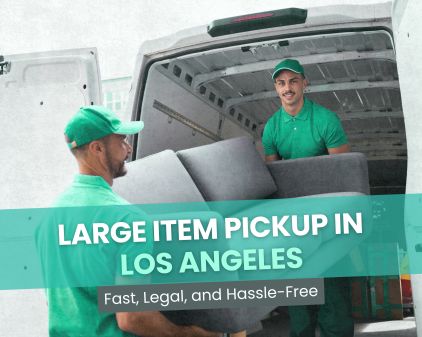Beneficial Reuse: The Answer to ‘How Can We Reuse Waste
Imagine a world where towering mountains of waste overshadow our cities, where landfills reach their brim, and the environment gasps for a breath of fresh air. This isn’t a scene from a dystopian novel but a looming reality. According to a recent report from UpperInc, about 2.01 billion tons of municipal solid waste is generated globally each year. With such staggering numbers, the question arises: How do we address this escalating crisis? Enter Beneficial Reuse, a concept that not only offers a sustainable solution but also promises a brighter, cleaner future.
Table of Contents
The Alarming Reality of Waste Generation
As per HWH Environmental, Every year, our planet is burdened with approximately 2.01 billion tons of municipal solid waste, a number that’s projected to rise exponentially in the coming years. The US alone produces an average of more than 1,700 pounds of waste per person, making it evident that our current waste management practices are falling short.
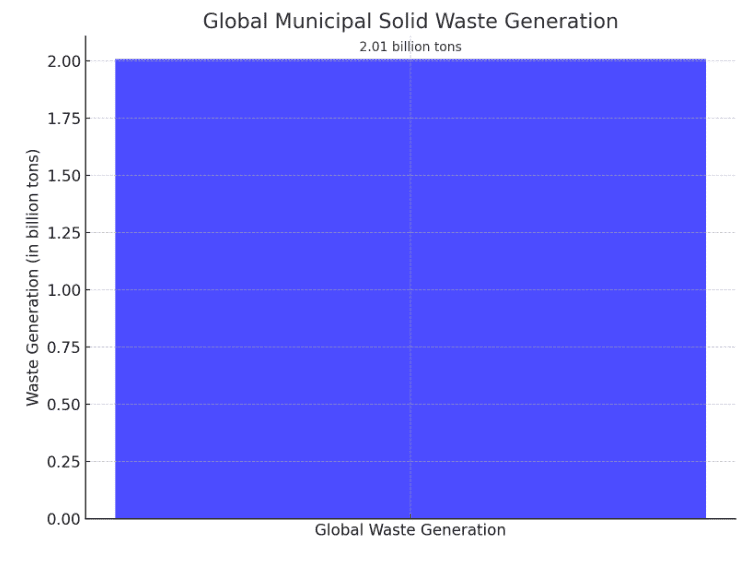
A Closer Look at the Numbers
According to the Environmental Protection Agency (EPA), In the United States, the average person generates over 4.9 pounds of waste per day, contributing to the growing waste crisis. To put this into perspective:
- The weight of daily waste generated by one person is equivalent to nearly 60 apples.
- In a week, one person’s waste could fill a bathtub.
- Over a year, the accumulated waste from one individual could fill six standard-sized dumpsters.
These statistics underscore the urgent need for innovative waste management solutions to curb the escalating waste problem.
The Silent Culprit: E-Waste
While the world is grappling with the overwhelming amounts of organic and inorganic waste, there is a silent culprit creeping into our environment: electronic waste (e-waste).
A study by MIT reveals that the world is on the brink of an e-waste crisis, with waste from solar panels alone projected to amass 78 million metric tons by 2050.
This waste is not only voluminous but also hazardous, containing harmful chemicals such as lead and cadmium, which pose severe risks to environmental and human health.
The Environmental Cost of Waste
The decomposition of organic waste produces carbon dioxide and methane, contributing significantly to global greenhouse gas emissions. Inorganic waste, on the other hand, utilizes extensive natural resources for production and incineration, releasing pollutants and carbon emissions.
For instance, every stage of plastic waste’s life cycle is dependent on fossil fuels, resulting in substantial carbon emissions.
While recycling and liquidation have been the go-to solutions for waste management, they’re proving to be mere band-aids on a deepening wound. The environmental repercussions of these methods are severe, leading to increased carbon footprints, polluted waterways, and strained natural resources.
Defining Beneficial Reuse
Beneficial Reuse is the transformative concept of giving waste a second life. Instead of discarding or merely recycling, it focuses on repurposing and reutilizing waste, turning potential landfill material into valuable assets for communities and industries.
Beyond Recycling: The Reutilization Revolution
Beneficial Reuse goes beyond the conventional methods of recycling, focusing on the reutilization of waste materials. It’s a revolutionary approach that sees waste not as a final product but as a resource, offering innovative solutions to combat the growing waste problem.
This method is not just about managing waste, it’s about transforming it into valuable assets, creating a sustainable loop where waste is continuously repurposed, reducing the strain on our planet’s resources.
By adopting the principles of Beneficial Reuse, we’re not just managing waste, we’re transforming it. This approach is revolutionizing the realm of sustainable waste management, offering tangible solutions to real-world problems and setting the stage for a future where waste is seen as a resource rather than a burden.
Environmental and Social Benefits
Beneficial Reuse offers a two-fold advantage. Environmentally, it aids in significant waste reduction and resource optimization. Socially, it supports communities by turning potential waste into valuable resources, fostering a sense of unity and shared responsibility.
Empowering Communities through Resource Optimization
By transforming potential waste into valuable resources, Beneficial Reuse empowers communities, especially those in need. It fosters a sense of unity and shared responsibility, allowing communities to thrive and develop sustainably.
This approach not only alleviates environmental concerns but also addresses social issues, promoting equality and improving the quality of life for all.
The Green Economic Shift
The adoption of Beneficial Reuse is not just an environmental necessity but also an economic opportunity. It opens up new avenues for green innovations and sustainable business practices, driving economic growth while preserving the environment.
This green economic shift is crucial for the long-term survival of our planet, ensuring that economic development does not come at the cost of environmental degradation.
For businesses, the shift to Beneficial Reuse isn’t just an ethical decision but a financially rewarding one. With potential cost savings, tax write-offs, and enhanced ESG scores, businesses can reap tangible benefits while contributing positively to the environment.
Transforming Unwanted Inventory into Opportunities
Happen Ventures stands at the forefront of the Beneficial Reuse movement, turning unwanted inventory into opportunities for communities and businesses alike. Their program showcases the immense potential of Beneficial Reuse, offering both environmental and economic benefits.
A Beacon of Sustainable Innovation
Happen Ventures is not just a proponent of Beneficial Reuse, it is a beacon of sustainable innovation. By transforming unwanted inventory into meaningful opportunities, it is showcasing the immense potential and versatility of Beneficial Reuse.
It’s a testament to how innovative thinking and responsible actions can lead to substantial environmental, social, and economic benefits.
Charting the Course to a Sustainable Future
With its visionary approach, Happen Ventures is charting the course to a sustainable future. It is leading the way in minimizing waste, optimizing resources, and reducing environmental impact, proving that a circular economy is not just a theoretical concept but a practical and attainable goal.
By embracing the principles of Beneficial Reuse, Happen Ventures is inspiring change and paving the way for a cleaner, greener, and more sustainable world.
With a vision of a circular economy, Happen Ventures is leading the charge in minimizing waste, optimizing resources, and reducing environmental impact. Their initiatives are a testament to the transformative power of Beneficial Reuse and its potential to reshape our future.
Conclusion
The global waste crisis is undeniable, but so is the potential for change. Beneficial Reuse offers a glimmer of hope, presenting a sustainable, effective, and holistic solution. As we stand at the crossroads, the choice is clear: continue down the path of unsustainable waste management or embrace the promise of Beneficial Reuse. The future is in our hands.

